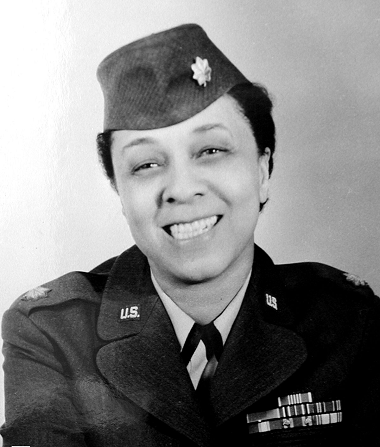U.S. Department of Labor issued the following announcement on Feb. 8.
The 2018 African American History Month theme, “African Americans in Times of War,” honors African Americans’ contributions to our military and sacrifices made for our country. This February, the Department of Labor remembers the exceptional life and career of Oleta Crain, a former regional administrator of the Labor Department’s Women’s Bureau.
Oleta Lawanda Crain (1913-2007) joined the Women’s Army Auxillary Corp (WAAC) in 1942. She was admitted to the regular Women’s Army Corps (WAC) as an Air Force Second Lieutenant in September 1943, and was later promoted to Major, a remarkable achievement. Out of the 300 women to enter officer training during WWII, she was one of only three African Americans. Major Crain’s outstanding leadership paid off, and she became the commander of a company of African American WACs.
When drill instructors complained that the women’s steps were too short to march and their voices too high to give commands, Major Crain adapted her technique. She taught her troop to lengthen their stride, and she deepened her voice when issuing commands, proving her critics wrong.
Major Crain was in charge of physical education for her troop during the war. Each Tuesday it was her responsibility to take the women to the swimming pool. In an effort to discourage the black troop from using the pool, they were regularly told that the schedule had been changed, and if the troop did use the pool, it was cleaned the next day. Once Major Crain became an officer she went to see the commandant to demand fair treatment, and she persuaded him to put an end to the practice of segregating the pool.
Major Crain retired from active duty in 1963, following tours in Alaska, England, and Germany. In September 1964, Major Crain started the next chapter of her career in service to her country at the Women’s Bureau, where I worked with her as she continued to advocate for the fair treatment of all women in the workplace until her retirement in 1998. Her service to our country and her commitment to fairness in the workplace are an inspiration to us all.
Marzy Bedford-Billinghurst is a program analyst in the Women’s Bureau.
Original source can be found here.


 Alerts Sign-up
Alerts Sign-up